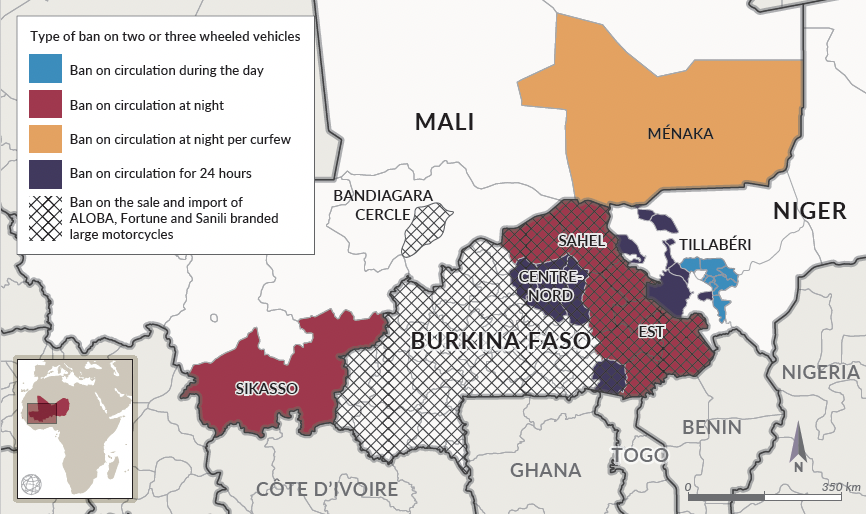Anatomy of a regional market
Motorbikes are one of the most widely trafficked commodities in the Sahel, deeply embedded in the Sahelian criminal economy. These trafficking networks are a crucial source for armed groups, particularly in the face of growing restrictions on trade.
State authorities have attempted to counter the ability of Jama’at Nasr al-Islam wal Muslimin (JNIM) and Islamic State Sahel (IS Sahel) ability to use motorbikes, albeit with limited success. Nevertheless, Mali, Niger, Burkina Faso, and now most recently Benin, have relied on a range of motorbike bans: limiting the types of motorbikes that can be used in a specific area, limiting the hours in which they can be driven and/or banning the sales or imports of motorbikes. Although, there is little evidence to suggest that these motorbike bans are inhibiting either armed group activity or their ability to obtain motorbikes.
This report examines how motorbikes are drivers of stability and instability in the Sahel region of West Africa.
Specifically, it examines how variants of motorbike crime contribute to destabilization at a local economic level and in the broader Sahelian conflict. In that regard, the practices of motorbike theft and trafficking are examined. The involvement of the Sahel’s armed groups in trafficking is closely explored, and it is argued that motorbike trafficking is critical to the operations and mobility of JNIM and IS Sahel.

